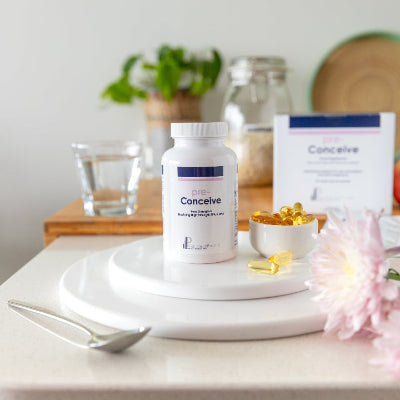Can Supplements Improve IVF Success? The Science Behind Fertility Nutrition
In vitro fertilisation (IVF) is a journey filled with hope, emotions, and countless decisions, one of which is whether supplements can improve your chances of success. Many people exploring IVF turn to fertility nutrition, wondering if adding vitamins, antioxidants, or other supplements to their routine can truly make a difference. The below is a general overview of how fertility nutrition can support natural and assisted reproduction.
The Role of Nutrition in Fertility
Proper nutrition supports overall health, but it also plays a significant role in reproductive health. Essential vitamins and minerals help regulate hormonal balance, promote egg and sperm quality, and support the uterine lining, all crucial factors in a successful IVF cycle.
Key Supplements to Consider
Here’s a breakdown of some commonly recommended supplements and their potential benefits:
- Folic Acid (Vitamin B9): Known for preventing neural tube defects, folic acid may also support embryo development and implantation.
- Vitamin D: Research suggests that adequate vitamin D levels may improve IVF outcomes, supporting both egg quality and uterine receptivity.
- Coenzyme Q10 (CoQ10): This antioxidant helps protect cells from oxidative stress and may improve egg quality, especially for individuals with diminished ovarian reserve.
- Omega-3 Fatty Acids: These healthy fats support hormone production, improve blood flow to reproductive organs, and may enhance embryo implantation.
- Zinc and Selenium: These trace minerals play a role in DNA synthesis and help protect reproductive cells from damage.
What Does the Research Say?
Research on fertility supplements is growing, and many findings offer hope. A 2017 study published in Reproductive Biomedicine Online found that women taking a combination of antioxidants, folic acid, and inositol had better embryo quality and higher pregnancy rates. Additionally, a 2019 review in Frontiers in Endocrinology highlighted the benefits of CoQ10 in improving ovarian response and embryo development, particularly in women over 35. Another study from The Journal of Clinical Endocrinology & Metabolism noted that vitamin D deficiency was associated with lower pregnancy rates, suggesting that maintaining adequate levels may enhance IVF success. And of course, there was our own examination into pre-Conceive.
Why pre-Conceive Is the Best Choice to Support IVF Success for Men and Women
When it comes to supporting IVF success, both partners play a vital role and pre-Conceive is designed to optimise fertility health for men and women alike. For women, pre-Conceive delivers a comprehensive mix of bioavailable vitamins, minerals, and antioxidants, including methylated folate, CoQ10, and omega-3 fatty acids, designed to support egg quality, hormone balance, and uterine health. For men, it contains key nutrients like zinc, selenium, and L-carnitine to promote sperm count, motility, and morphology. By supporting nutritional standards from both sides, pre-Conceive enhances the chances of healthier embryos, improved implantation, and a successful IVF outcome. This all-in-one formula eliminates the need for multiple supplements, offering a convenient and research-backed way to support your fertility journey.
The Importance of Personalised Guidance
Every fertility journey is unique. Consulting with a fertility specialist or a nutritionist experienced in reproductive health is crucial before starting any supplement regimen.
Final Thoughts
Supplements can play a supportive role in IVF success, particularly when they address specific nutritional deficiencies or reproductive challenges. However, they’re not a magic solution. A balanced diet, regular exercise, stress management, and personalised medical care remain essential pillars of a healthy fertility journey. We are happy to receive any and all question on whether pre-Conceive is right for you; contact us here.
For some additional information, visit Reproductive Medicine Associates and IVF Matters.






